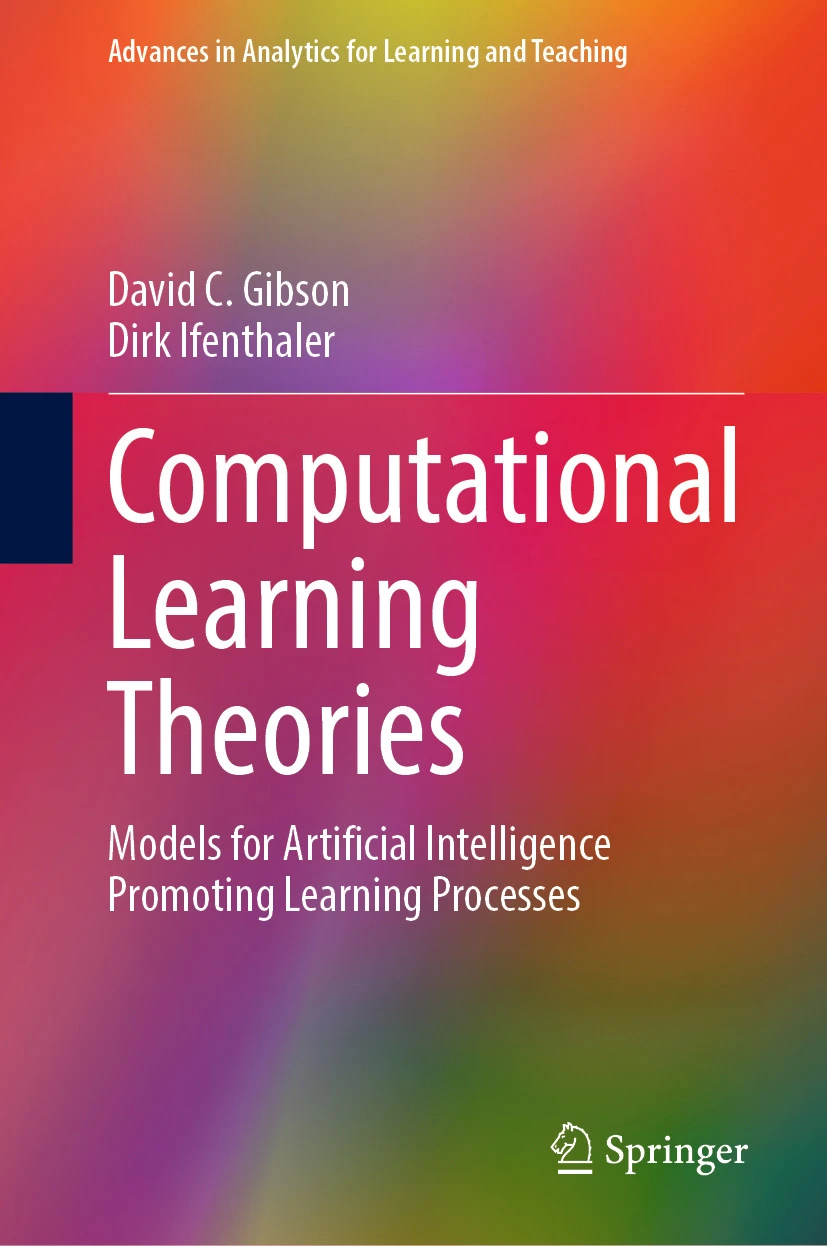A new monograph focussing on models for artificial intelligence promoting learning processes was published.
Gibson, D. C., & Ifenthaler, D. (2024). Computational learning theories. Models for artificial intelligence promoting learning processes. Springer. https://doi.org/10.1007/978-3-031-65898-3
This book shows how artificial intelligence grounded in learning theories can promote individual learning, team productivity, and multidisciplinary knowledge-building. It advances the learning sciences by integrating learning theory with computational biology and complexity. It offers an updated mechanism of learning that integrates previous theories, provides a basis for scaling from individuals to societies, and unifies models of psychology, sociology, and cultural studies.
The book provides a road map for the development of AI that addresses the central problems of learning theory in the age of artificial intelligence, including:
- optimizing human-machine collaboration
- promoting individual learning
- balancing personalization with privacy
- dealing with biases and promoting fairness
- explaining decisions and recommendations to build trust and accountability
- continuously balancing and adapting to individual, team, and organizational goals
- generating and generalizing knowledge across fields and domains
The book will be of interest to educational professionals, researchers, and developers of educational technology that utilize artificial intelligence.

